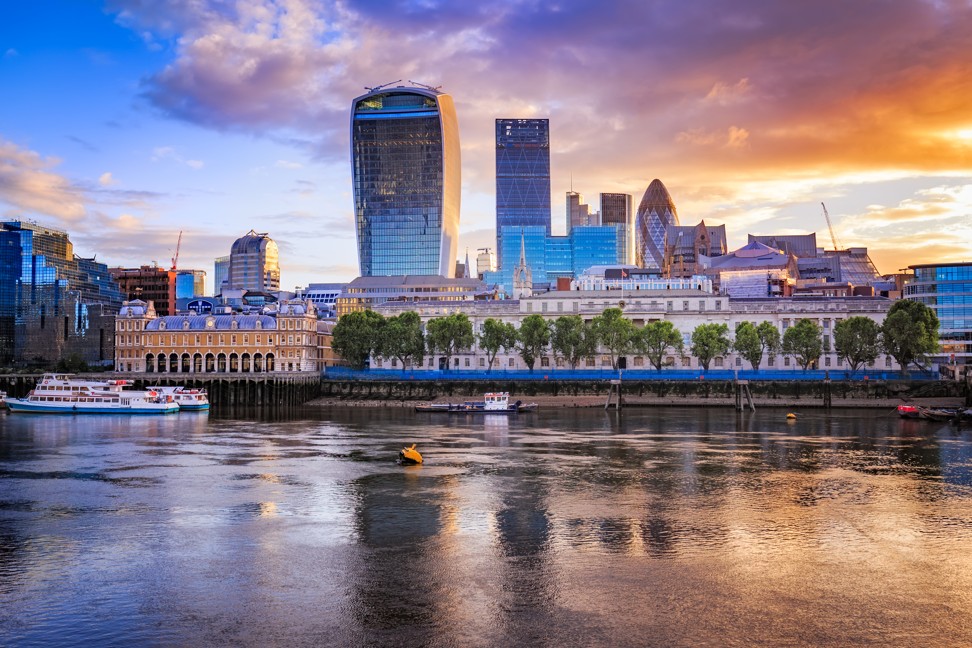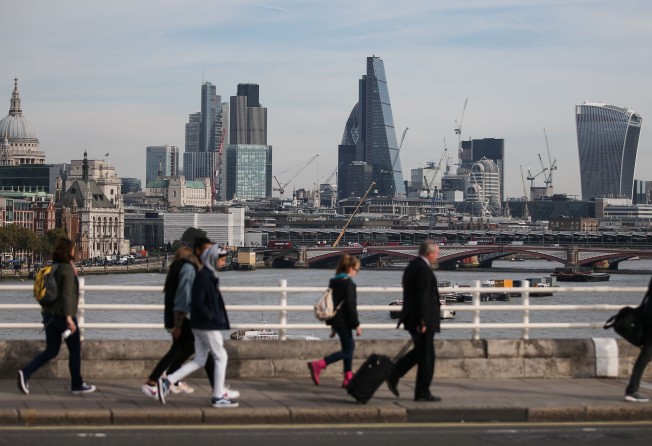
Hong Kong tycoons seeking UK investments must go with eyes wide open
Hong Kong families seeking diversification need to understand that they may be entering a hazardous economic, social and property cycle in Britain.

Major investments outside of Hong Kong by the city’s wealthiest families have raised questions about an exodus of wealth before 2047 and whether their actions represent moves by “smart money.”
Lee Kum Kee Group, the Hong Kong company best known for its oyster sauce condiment, recently purchased a London office tower known as “Walkie Talkie” for a record £1.3 billion (US$1.7 billion), landing one of the largest commercial property deals in the UK.

Hong Kong’s prime office and commercial prices just increased by between 10 per cent and 15 per cent in May, after a sale of the Murray Road land parcel in Central for a world record setting price. But, it also showed there was a shortage of prime investment property.
Hong Kong’s wealth, compared with wealth in mainland China, has evolved through multiple generational changes where there is a clearer separation of business from the family or financial assets. Unlike much of China’s wealth, which is first generation, some Hong Kong wealth is well into their second and third generations, which demand widely different priorities.
Watching where Hong Kong’s wealth flows is an accurate barometer of how the city’s tycoons perceive the political and economic risks of China and Hong Kong relative to international risk.
The city’s Chinese families used to conflate business and private wealth - the person (usually a matriarch or patriarch) was also the corporate body.
As family wealth expanded and successive younger generations received better education, they understood the value of dividing the strategies between their business activities such as factories in China and financial investment.
A new generation with financial backgrounds knew that portfolio management was fundamentally different from running a business.
Diversification, capital preservation and risk control rather than absolute returns become top priorities; especially guarding against domestic investment bias - buying more real estate in Hong Kong is not necessarily a diversification from their China equities.
UK investment seems to be a low political risk for many Hong Kong investors, given their familiarity with the country. The yield on prime office building in London is typically 3.5 per cent, compared with just 2.9 per cent in Hong Kong and the pound is relatively cheap.
Many of the second and third generations of Hong Kong wealth were educated in London, and are willing to take an optimistic bet on the outcome of Brexit.
But their investment considerations could be blindsided by some cruel realties. Investors in office and commercial UK properties will be dependent on high quality economic growth.
Some issues are worrisome. Education and wealth disparity are especially high in Britain. Although the country claims to have a world class system, the latest figures from the Organisation for Economic Cooperation & Development (OECD) show that on scores for literacy and numeracy, 16 to 24 year olds in England and Northern Ireland rank the lowest four of the organization’s 35 member countries.
And nine of Northern Europe’s 10 poorest regions - including West Wales, Cornwall and Lancashire- are located in Britain.
Britain’s prosperity is highly dependent on trade with Europe. Just about 44 per cent of British exports and more than half of its imports are with the European Union. London’s financial and business services comprise a third of Britain’s gross domestic product, but so far there are no assurances from EU to let London’s financial markets retain their importance. Indeed, EU regulators have been imposing more costs on banks by forcing them to replicate operations in Europe.
As time passes, it appears that David Cameron’s decision to hold the 2016 referendum was an act of spectacular political and economic folly. It is possibly the greatest blunder ever made by a British Prime Minister according to Michael Portillo.
Brexit will likely depress the economy and investment in Britain. Negotiating Brexit will be a costly exercise. Replicating EU relationship without open borders will result in an inferior relationship in every way during a period of great market uncertainty and instability.
Hong Kong families seeking diversification need to understand that they may be entering a hazardous economic, social and property cycle in Britain.
Peter Guy is a financial writer and a former international banker.